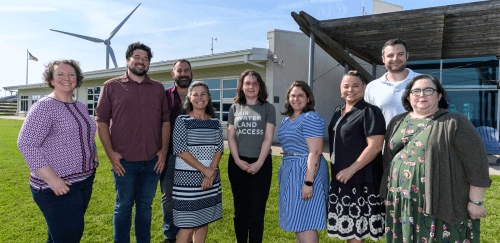The Sherlock Center celebrated its 30th anniversary, awarded five Access for All Abilities Mini Grants and cooled off with an ice cream social at “An Evening at Roger Williams Park Zoo” on Thursday, June 20.
Eligibility and projects
Learn more about who can apply for mini grants and the kinds of projects our grants support.
Applicants must provide social, leisure, recreational or cultural activities to the public.
Applicants must be located in Rhode Island or primarily serve Rhode Island communities.
Applicants must be one of the following:
- For-profit business
- For-profit or nonprofit organization
- Rhode Island school or school organization
- Rhode Island city and town government agency
Organizations whose primary mission or client/customer base is disability focused are not eligible for a grant.
Some ideas that might receive funding are:
An art studio plans to purchase wheelchair accessible tables and easels.
An organization plans to provide weekly activity schedule and materials in accessible formats (e.g., large print, braille, plain language).
A neighborhood gym plans to install a specialized piece of equipment that will be used next to other members.
A summer camp plans to provide staff and counselors with disability awareness training.
A theater plans to install an automatic door at its entrance.
View past grant recipients below for more project ideas that received funding.
Some ideas that would NOT receive funding are:
A fitness studio plans to offer Zumba classes only for people with disabilities.
A town plans to start a sports team for youth with autism.
An organization plans to offer education, employment or skills training programs.
For help or more information, contact Crystal Cerullo at ccerullo@ric.edu or call 401-456-8915 (Ph.), TTY via RI Relay: 711 or 800-745-5555, Spanish via RI Relay: 711 or 866-355-9214

